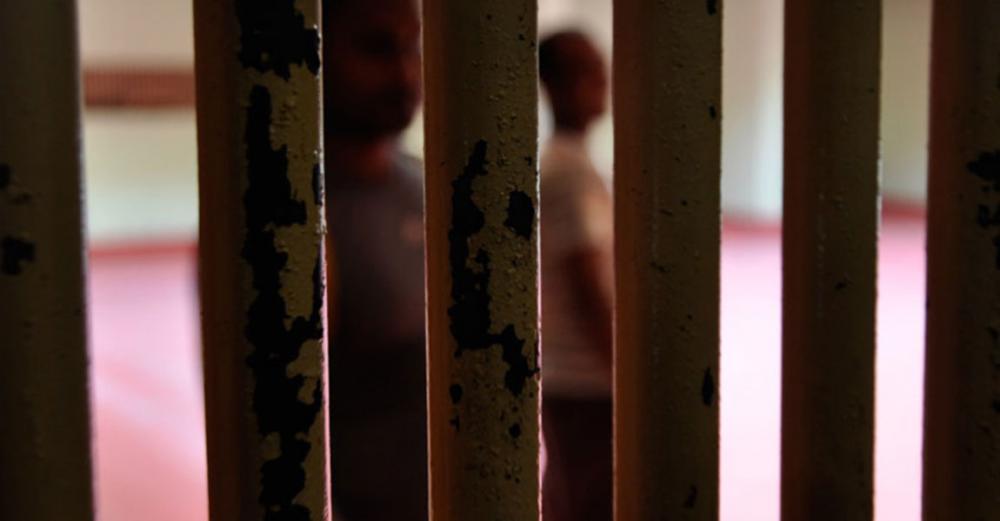Just Earth News | @justearthnews | 29 Aug 2020

A prison cell.:UNICEF/Rajat Madhok
New York: A group of independent UN rights experts have raised alarm over “grave and unnecessary” risks faced by imprisoned human rights defenders in Egypt due to lengthy pre-trial detention.
The risks are all the more pronounced during the current pandemic, they said in a news release on Monday, calling on the authorities to facilitate the release of prisoners with pre-existing medical conditions or those detained without sufficient legal basis.
There are few publicly available statistics on COVID-19-related deaths in Egyptian prisons, so the experts rely on independently verified third-party reports, according to the news release.
“With few physical distancing measures in place in these prisons, we fear that the death toll may be much higher than the cases so far corroborated,” the experts said.
Detained rights defenders have few opportunities to make known their health conditions, as they are not being given a chance to individually contest the charges they face under national security legislation, the experts added.
‘Denial of the right to a fair trial’
The UN human rights experts also raised concern over the handling of the activists’ detention and trials, noting that such actions violate international human rights standards.
“Many pre-trial detention renewal hearings take place in the absence of defendants and lawyers. Where defendants are being transferred to court, they have been tried in big groups without individual consideration of personal or medical circumstances,” they said, adding:
“What we are seeing is the denial of the right to a fair trial, at a time when authorities should be stepping up efforts to facilitate the release of prisoners detained without sufficient legal basis or with pre-existing medical conditions.”
Pandemic underlines need to protect rights defenders
The rights experts highlighted the case of Ibrahim Ezz El-Din, a defender of the right to housing and against unlawful evictions, who was forcibly disappeared for 167 days in 2019, and allegedly tortured. He is in now prison, but has not been able to request temporary release on the basis of his pre-existing respiratory condition.
“No circumstances whatsoever may be invoked to justify enforced disappearances,” the experts said, adding “the pandemic brings a heightened need to protect human rights defenders, as now there is even less space for victims to denounce violations”.
The pandemic brings a heightened need to protect human rights defenders, as now there is even less space for victims to denounce violations
Mr. Ezz El Din is just one of many human rights defenders who find their lives at ever increasing risk. Others include Esraa Abdel Fattah and Sanaa Seif, both women human rights defenders, and Ramy Kamel, a defender of the Coptic Christian minority. None have been allowed to communicate regularly with their families or lawyers.
The experts added that they are in direct dialogue with Egyptian authorities on these and other cases and pledged to closely monitor the situation.
Recognize ‘vital role’ of rights defenders
Mary Lawlor, special rapporteur on the situation of human rights defenders, one of the experts making the joint appeal also drew attention to “credible allegations” of rights violations, including torture.
“There are credible allegations that some Egyptian defenders have been arbitrarily detained, forcibly disappeared or tortured simply for standing up for human rights,” said Ms. Lawlor.
“Egypt must release imprisoned human rights defenders and recognise the vital role they play in society,” she stressed.
The experts also underlined the importance of independent access to information about a detainee’s wellbeing to reduce the risk of torture and serious human rights violations, adding that “during a pandemic, it becomes even more vital.”
Alongside Ms. Lawlor, the independent human rights experts making the appeal include the special rapporteurs on extrajudicial, summary or arbitrary executions; promotion and protection of the right to freedom of expression; promotion and protection of human rights and fundamental freedoms while countering terrorism; minority issues; rights of peaceful assembly and association; torture and other cruel, inhuman or degrading treatment or punishment; independence of judges and lawyers; and freedom of religion or belief; as well as the members of the Working Group on Enforced or Involuntary Disappearances; and the Working Group on Arbitrary Detention.
The Special Rapporteurs and Independent Experts are part of what is known as the Special Procedures of the Human Rights Council. The experts work on a voluntary basis; they are not UN staff and do not receive a salary. They are independent from any government or organization and serve in their individual capacity.